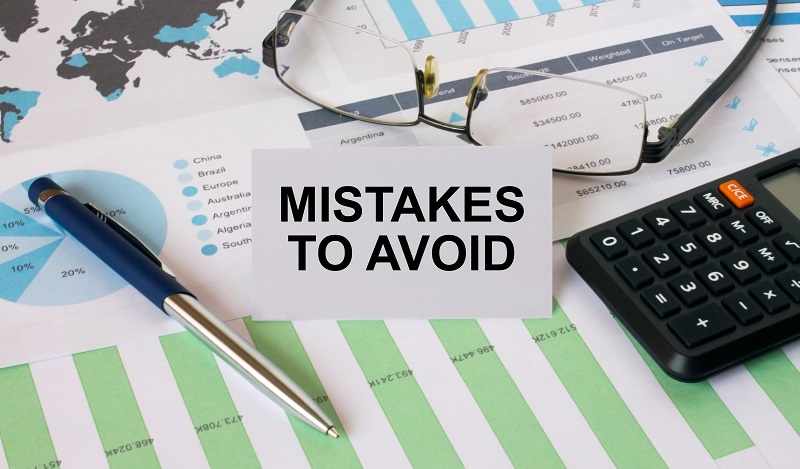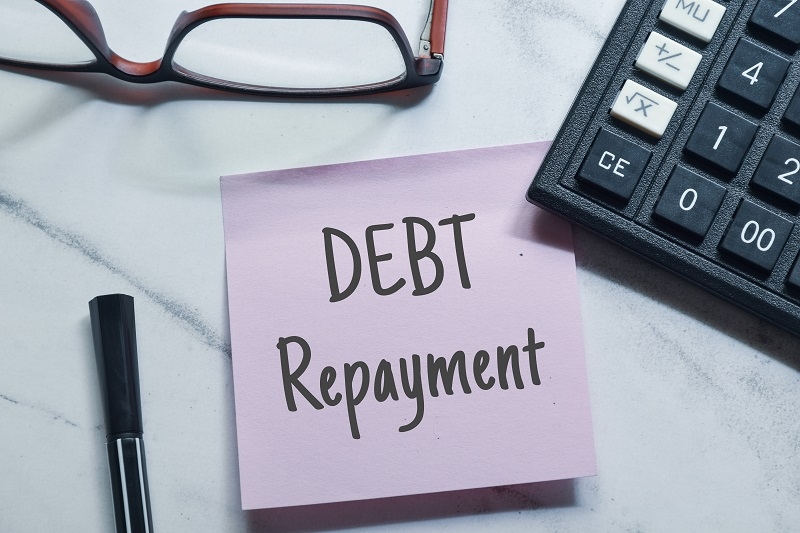
Borrowing for the first time is a big-money move—one that can get you to where you need to go, whether it's purchasing a car, financing school, refinancing debt, or covering emergencies. But it also invites disaster. It's essential to know the loan blunders to avoid if you plan to stay financially healthy in the long term. From frequent personal loan mistakes to loan repayment pitfalls, first-time borrowers tend to make unnecessary decisions that ultimately cost thousands down the road.
In this complete guide, we will dissect the most frequent mistakes people commit when borrowing for the first time. Whether you're borrowing online or in-branch, the information that follows will assist you in making more intelligent, more responsible borrowing decisions.
First-time borrowers can be inexperienced at using financial loans and can make financial mistakes because they don't have the financial courage to think through the loan process. When first applying for a loan, the chances of making the mistakes to avoid without doing the research are significant, such as assuming the interest rate was not too high, not understanding the terms of repayment, or not understanding loan fees. Mistakes can lead to common personal loan mistakes and long-term difficulties in repayment. Knowing what not to do when you plan to apply for a loan will enable you to make better, more informed, responsible borrowing decisions from the outset.
Most first-time borrowers pay attention to the interest rate alone, but the cost of a loan is so much more than that. Lenders tend to add origination fees, processing fees, and prepayment penalties—fees that add quite a bit to your overall repayment amount. This is one of the loan errors to watch out for, which can quietly chip away at your finances.
Always request the APR (Annual Percentage Rate), rather than the interest rate. The APR shows the actual cost of borrowing, including all extra charges. Ask for a breakdown and compare repayment costs overall among various lenders.
Your credit score isn't a number—put, it's a big determinant of whether you'll qualify and what rate of interest you'll get. Too many borrowers apply for a loan without reviewing their credit score first. This can result in high rates or straight-up rejection.
A bad credit rating can boost your interest rate by several percentage points, adding potentially thousands to the amount you repay.
Before applying, ask for a free credit report. Challenge any mistakes and work to boost your score, for example, by paying off outstanding debts or lowering your credit utilization percentage.
It can be tempting to borrow more "just in case," but overborrowing is among the most prevalent personal loan mistakes. Lenders might offer you more than you require, but that doesn't necessarily mean you need to take it.
Larger loans lead to larger interest costs, longer repayment periods, and an increased strain on your monthly budget.
Plan a proper budget of exactly what you need the loan for. Only borrow what you need, and never more—make sure you don't need the money first!
Another one of the big loan mistakes to avoid is accepting the first quote that comes to you. Rates, terms, and fees are very variable among lenders, and if you do not shop around, you will likely regret your decision later.
Never assume that your bank or the most popular lender online has the best offer. This is especially true for unsecured personal loans.
Use a loan comparison site to assess several proposals. Look for lenders who offer clear terminology, no hidden fees, and good customer reviews.
There are secured loans, unsecured loans, personal loans, lines of credit, payday loans, and even more. There are different terms, interest rates, and amounts of risk associated with each loan.
Payday loans are easy to get - and easy to get tripped up on because they attach to very high APR and predatory conditions. Getting stuck in one of these types of loans is a very dangerous mistake.
Know your needs, and choose the loan type that is best for you. ALWAYS READ THE FINE PRINT.

For many first-time borrowers, the monthly payment is typically the focus, and they ignore the total repayment time. A low monthly payment sounds appealing, but if you pay it over many years, it costs a lot more.
Longer terms equal more interest. You may feel that the monthly payments are affordable, but you may be paying a significantly larger amount in total.
Target the shortest repayment term you can afford. Compare various term lengths and total repayment costs using an online loan calculator.
This is a whopper—one that's perhaps the most underappreciated of all loan missteps to sidestep. Signing the loan contract without reading the fine print is a good way to be surprised down the road by unpleasant events.
Red Flags to Be Aware Of:
Never sign what you haven't read carefully. If you have to, get advice from a financial advisor to ensure that you understand all the implications.
It's good to throw a wide net when seeking a loan, but applying to multiple lenders in a short period can hurt your credit score.
Each loan application causes a hard inquiry on your credit file, which reduces your score. Numerous hard inquiries will warn potential lenders that you might be in financial trouble.
Use a pre-qualification tool, which only results in a soft inquiry.This allows you to preview your likelihood of approval without affecting your credit.
When borrowing for the first time, most individuals are unduly optimistic about repayment. Life intervenes—loss of employment, medical bills, unforeseen expenses.
Not creating a safety net can lead you to default on the loan, which hurts your credit and potentially leads to legal consequences.
Have a contingency plan in your budget. Keep emergency savings or buy loan protection insurance if offered.
A personal loan isn't always the way to go. Depending on your circumstances, options such as credit union loans, 0% APR promotional offers on credit cards, or borrowing from relatives may be more appropriate.
Jumping into a personal loan without comparing it to other sources of funds is one of the common mistakes, particularly for small expenditures.
Consider all the options first before settling for a loan. Although a high-cost short-term loan could be a bad choice financially when compared to other sources of funds.
Borrowing money is not necessarily bad; it is you who makes the process bad by deciding what you do with the money you are borrowing. Understanding the loan mistakes to avoid, not making loan calculation mistakes, and not making mistakes when you get a loan can all get you on the road to getting into a solid financial future
Here is a quick list of how to borrow wisely:
If you can avoid loan repayment mistakes and educate yourself at the beginning as much as you reasonably can, you will not only protect your credit, but you will also put yourself on the road to long-term financial security. Be diligent, ask questions, and do not agree to something you don't understand.
This content was created by AI